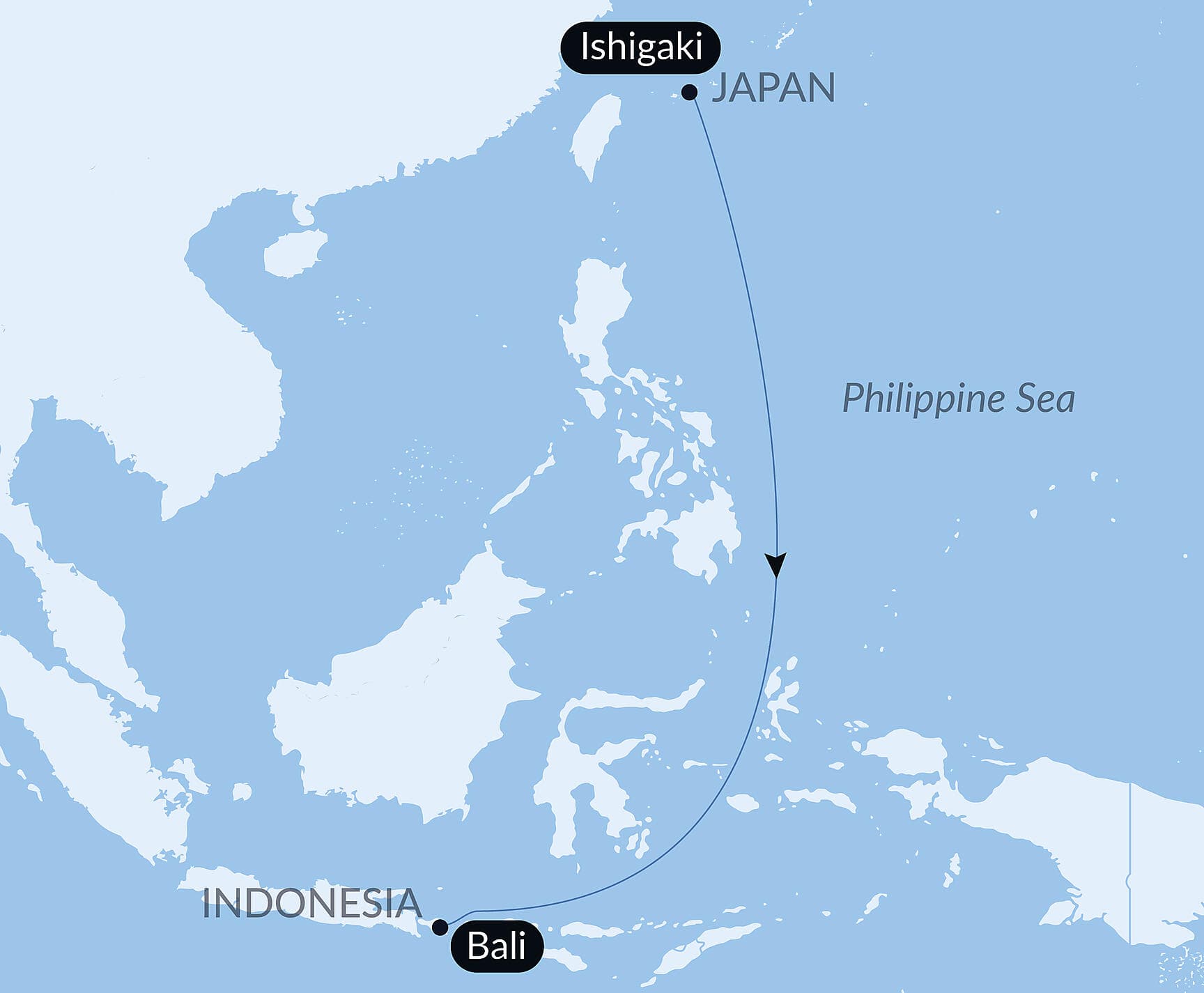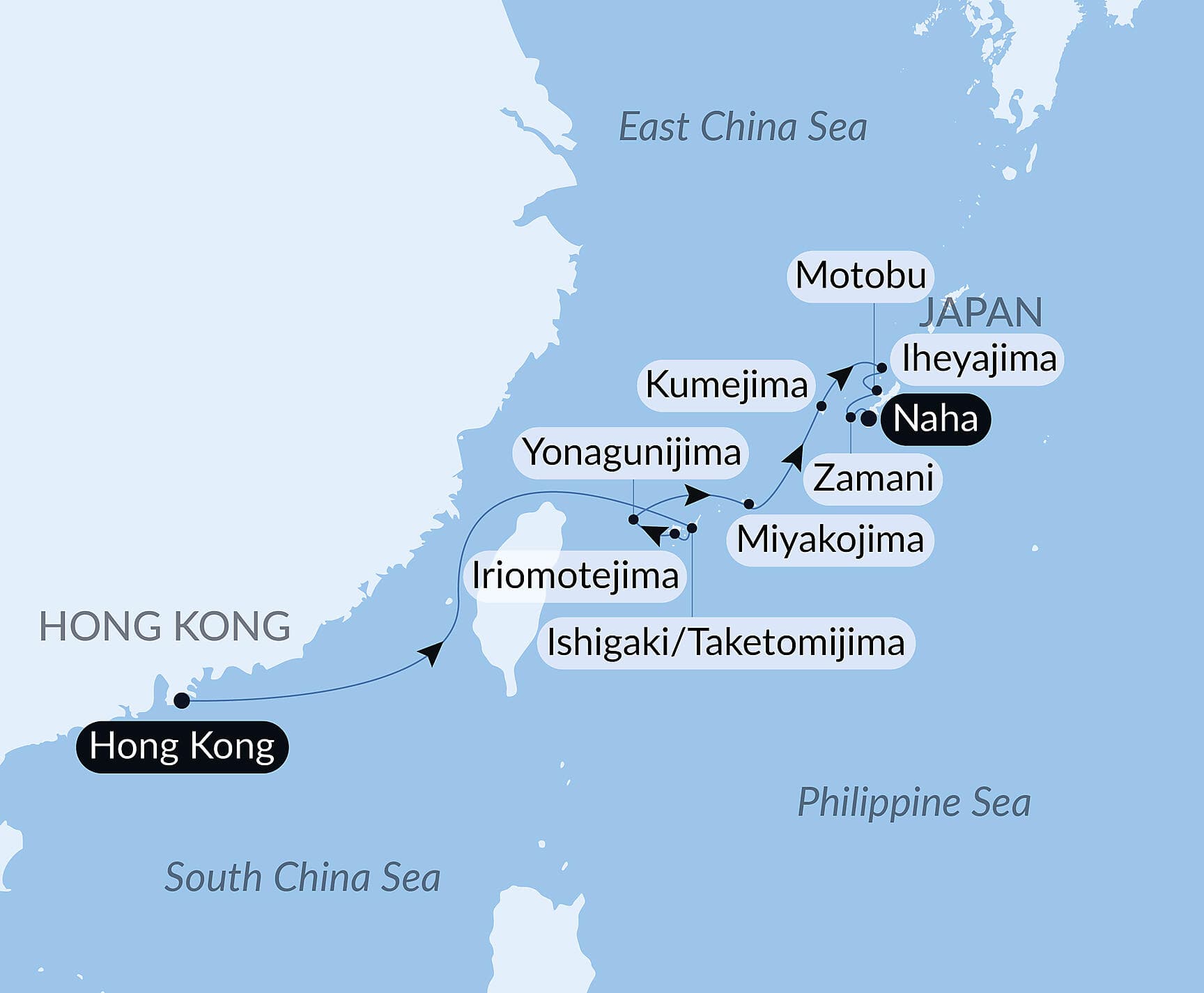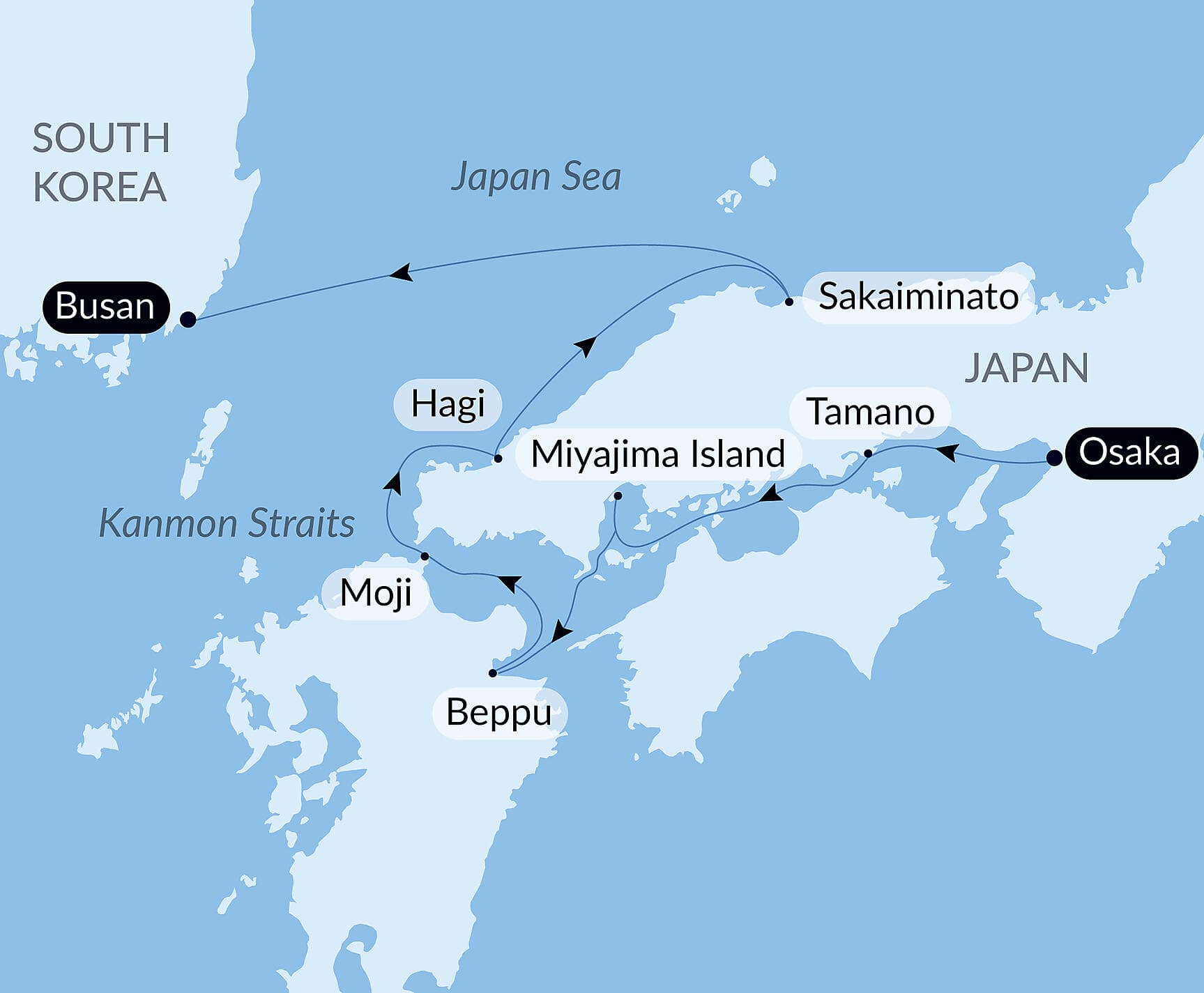Asia
4 reasons why
Discover Asia
19 cruises in Asia
From
Guam (Guam)
To
Osaka (Japan)
5 nightsaboard the shipLe Soléal
Next departure
From
Ishigaki (Japan)
To
Benoa, Bali (Indonesia)
10 nightsaboard the shipLe Jacques Cartier
Next departure
From
Lautoka, Viti Levu Island (Fiji)
To
Benoa, Bali (Indonesia)
20 nightsaboard the shipLe Paul Gauguin
Next departure
From
Hong Kong (Hong Kong)
To
Naha, Okinawa (Japan)
12 nightsaboard the shipLe Jacques Cartier
Next departure
Treasures of Japan and South Korea by Sea – with Smithsonian Journeys
From
Osaka (Japan)
To
Busan (South Korea)
8 nightsaboard the shipLe Soléal
Next departure
Voyage to Indonesia: Dragons, Reefs, and the Spice Islands – with Smithsonian Journeys
From
Benoa, Bali (Indonesia)
To
Darwin (Australia)
12 nightsaboard the shipLe Jacques Cartier
Next departure
From
£9,540 /person*
From
Osaka (Japan)
To
Busan (South Korea)
12 nightsaboard the shipLe Soléal
Next departures
From
Busan (South Korea)
To
Osaka (Japan)
12 nightsaboard the shipLe Soléal
Next departures
From
Benoa, Bali (Indonesia)
To
Cairns (Australia)
15 nightsaboard the shipLe Soléal
Next departure
From
Benoa, Bali (Indonesia)
To
Benoa, Bali (Indonesia)
10 nightsaboard the shipLe Soléal
Next departure
From
Keelung (Chilung) (Taiwan)
To
Singapore (Singapore)
12 nightsaboard the shipLe Jacques Cartier
Next departures
Treasures of Japan and South Korea by Sea – with Smithsonian Journeys
From
Busan (South Korea)
To
Osaka (Japan)
8 nightsaboard the shipLe Soléal
Next departure
*Price displayed is per person, based on double occupancy, based on availability, and subject to change at any time. The category of stateroom to which this price applies may no longer be available. The price includes the Ponant Bonus discount.
Inspiration
The must-sees of Asia
See all cruises in Asia
Explore

Ports of call in Asia
The most beautiful way to experience Asia is to approach its ports of call on a cruise. Each country offers unique experiences: sailing in Halong Bay, exploring the terraced rice fields in Bali, facing Mount Fuji in Japan, discovering the cosmopolitan cities of Hong Kong, Shanghai, Bangkok or Singapore... Between ancient traditions and megacities looking towards the future, immerse yourself in the rhythm of the Far East.
Discover our cruises in Asia going through
- 17 Islands Marine Park, Flores (Indonesia)
- Aburatsu (Japan)
- Alotau (Papua New Guinea)
- Amakusa Region (Japan)
- Asmat, Papua (Indonesia)
- At sea (-)
- Badas, Sumbawa (Indonesia)
- Balabac Islands (Philippines)
- Banda Neira, Maluku Islands (Indonesia)
- Barat Daya Islands (Indonesia)
- Baucau (East Timor)
- Benoa, Bali (Indonesia)
- Beppu, Oita (Japan)
- Bintulu, Sarawak (Malaysia)
- Busan (South Korea)
- Cairns (Australia)
- Cape York (Australia)
- Coron (Philippines)
- Corregidor Island (Philippines)
- Crossing the Kanmon Straits (Japan)
- Currimao (Philippines)
- Darwin (Australia)
- Dili (East Timor)
- Espiritu Santo Island (Vanuatu)
- Guam (Guam)
- Hagi (Japan)
- Himeji (Japan)
- Hiroshima (Japan)
- Hong Kong (Hong Kong)
- Honiara, Guadalcanal Island (Solomon Islands)
- Iheyajima (Japan)
- Iki Island (Japan)
- Iriomotejima (Japan)
- Ishigaki (Japan)
- Itozaki (Japan)
- Jeju (South Korea)
- Kagoshima (Japan)
- Kalabahi, Alor (Indonesia)
- Karatsu (Japan)
- Keelung (Chilung) (Taiwan)
- Kei Islands, Maluku Islands (Indonesia)
- Kikaijima (Japan)
- Kitikiti Waterfall, Mommon (Indonesia)
- Kobe (Japan)
- Kochi (Japan)
- Komodo National Park (Indonesia)
- Koshikijima Islands (Japan)
- Kuching, Sarawak (Malaysia)
- Kumejima (Japan)
- Lautoka, Viti Levu Island (Fiji)
- Lizard Island (Australia)
- Manila (Philippines)
- Maumere, Flores (Indonesia)
- Mitarai (Japan)
- Miyajima Island (Japan)
- Miyakojima (Japan)
- Miyanoura, Yakushima (Japan)
- Miyazaki (Japan)
- Moji, Kitakyushu (Japan)
- Motobu, Okinawa (Japan)
- Muara (Brunei Darussalam)
- Nagasaki (Japan)
- Naha, Okinawa (Japan)
- Onomichi (Japan)
- Osaka (Japan)
- Port Vila, Efate (Vanuatu)
- Puerto Princesa, Palawan (Philippines)
- Sakaiminato (Japan)
- Saleh bay, Sumbawa (Indonesia)
- Samarai Island (Papua New Guinea)
- Satonda Island (Indonesia)
- Shimokamagari (Japan)
- Shimonoseki (Japan)
- Shingu (Japan)
- Singapore (Singapore)
- Takamatsu (Japan)
- Taketomijima (Japan)
- Tamano (Japan)
- Toba (Japan)
- Tomonoura (Japan)
- Triton Bay, West Papua (Indonesia)
- Uwajima (Japan)
- Waikelo, Sumba (Indonesia)
- Yonagunijima (Japan)
- Zamami (Japan)
More inspiration
Upcoming departures, new experiences, interviews, exploration or scouting stories... All brochures can be ordered or downloaded in digital format.
Destinations





























